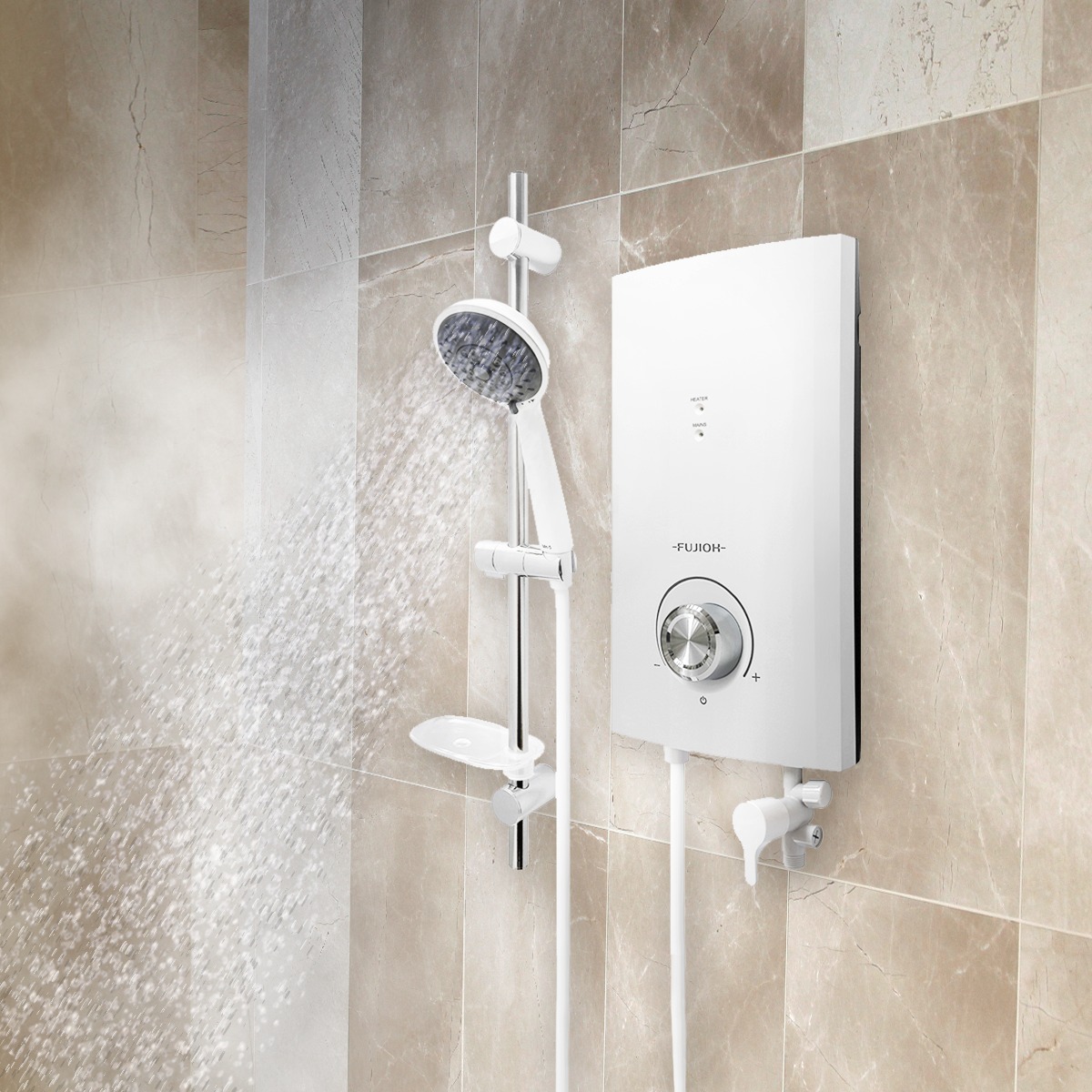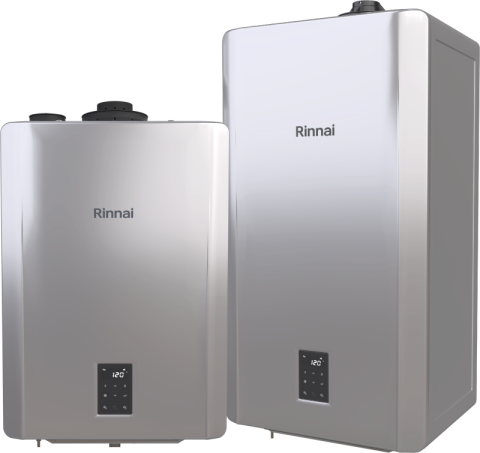My Handbook To The Pros Of Continuous-Flow Water Heaters
My Handbook To The Pros Of Continuous-Flow Water Heaters
Blog Article
Are you currently on the lookout for information and facts on Six Benefits of a Tankless Hot Water Heater?

In a globe where comfort and performance reign supreme, it's no surprise that house owners are frequently on the lookout for smarter means to manage their home's power intake and convenience. One development that has actually gradually gained popularity is the tankless water heater. But exactly what makes these systems stand apart from the traditional tank-based designs the majority of us grew up with? Let's dive in and explore the advantages of tankless water heaters, aiding you make a decision if it's time to make the switch in your home.
Intro
Picture this: you enter the shower after a long day, expecting a soothing waterfall of warm water, just to be greeted by icy beads since the last individual utilized everything up. Audio familiar? Conventional water heaters save a set quantity of hot water, implying you go to the grace of that storage tank's supply. Tankless systems, on the other hand, warm water as needed. Say goodbye to running out mid-shower, say goodbye to fumbling with schedules simply to make sure warm water is offered.
Understanding Tankless Water Heaters
What Are Tankless Water Heaters?
Tankless hot water heater, in some cases known as on-demand or instantaneous water heaters, provide warm water only as it's required. As opposed to keeping gallons of pre-heated water, these units kick right into action the minute you activate the faucet. Water goes through a warmth exchanger, warming up in real-time, implying you get a nonstop circulation of hot water without the requirement for a large storage tank resting idly by.
Just how Do They Differ from Standard Equipments?
Standard heaters hold a storage tank of hot water, using energy to maintain that container at a consistent temperature. Tankless units eliminate the standing supply, minimizing lost power and the large impact of a huge cylinder. Essentially, you're updating from a "stockpile" state of mind to a "made-to-order" method.
Usual Kinds Of Tankless Units
Tankless hot water heater typically are available in two selections: gas and electrical. Gas designs often tend to provide higher circulation prices, perfect for bigger homes, while electric versions commonly serve smaller homes and are commonly easier to install. Furthermore, some systems are designed for point-of-use (offering one component) while others can deal with the entire home's hot water requirements.
Key Advantages of Tankless Hot Water Heater
1. Unlimited Hot Water Supply
Ever had to schedule showers so everybody obtains their fair share of hot water? With tankless, that becomes a distant memory. As long as the heater's flow ability isn't surpassed, you can take back-to-back showers without developing into a popsicle.
2. Power Effectiveness and Price Savings
No more heating a giant storage tank's well worth of water and keeping it warm all the time. Tankless heating units reduce standby power losses, which can decrease energy costs. While the first price might be greater, the lasting cost savings typically justify the investment.
3. Space-Saving Design
If your home is short on storage, removing the bulky tank liberates useful area. Tankless devices are compact and can typically be installed on walls, tucked away in corners, or installed in limited energy wardrobes without gobbling up the whole room.
4. Longer Life-span
A well-maintained tankless water heater can outlast its tank-based relative. Standard tanks may last 10-15 years, while tankless models can keep downing along for 20 years or more, making them a strong investment in time.
5. Improved Water Top Quality
Saving water in a tank can in some cases cause debris build-up or a slightly "off" taste. With tankless systems, fresh water is heated instantly, reducing the possibilities of sediment build-up and potentially supplying cleaner-tasting water.
Factors to consider Before Changing
Though the advantages are engaging, it's wise to consider a couple of factors prior to completely devoting.
Preliminary Investment Costs
Tankless heaters normally include a higher upfront price. Between the device itself and potential setup modifications, the initial price might offer you sticker label shock. But keep in mind to see it as a long-term investment.
Installation Requirements
Relying on your home's framework, you may require additional electric ability or gas line upgrades. Ensure you understand the installment demands and talk to a specialist to stay clear of surprises.
Examining Your Home's Water Use Patterns
If your household at the same time uses multiple components with high hot water need, ensure the unit's circulation price fulfills your demands. Knowing your usage patterns helps you pick the ideal dimension and kind of tankless heating system.
Upkeep and Care Tips
Tankless systems are fairly low upkeep, however they aren't set-it-and-forget-it home appliances.
Regular Cleaning and Descaling
Tough water minerals can accumulate in the heat exchanger, influencing effectiveness. Regular descaling (usually advised each year) maintains the device going for peak performance.
Annual Professional Examinations
A yearly checkup from a professional ensures small issues are captured early. They'll analyze the device's efficiency, try to find leakages, and aid keep optimal performance.
Ensuring Correct Ventilation
For gas versions, proper ventilation is essential to safely remove exhaust gases. Ensure venting systems are tidy and properly installed to stop any kind of potential security hazards.
Comparing Different Brands and Models
Not all tankless water heaters are produced equivalent.
Investigating Reliable Manufacturers
Seek reputable brand names with a background of generating quality units. A trusted producer typically gives better customer assistance and longer service warranties.
Reading Evaluations and Customer Comments
User reviews and feedback from neighbors or pals who have gone tankless can supply important understandings. Occasionally, real-life experiences can be more informing than advertising and marketing pamphlets.
Setup: DIY or Specialist?
While some property owners enjoy tackling tasks themselves, tankless setup may not be the most effective time to break out the tool kit.
Benefits and drawbacks of Do It Yourself Setup
A DIY install could conserve cash, however it features threats. Wrong setup can result in inefficiency or security worries. If you're handy and have experience, it could be practical-- but proceed with caution.
When to Call a Specialist Plumbing Technician
For most, calling a professional ensures everything's done correctly. A specialist plumber recognizes local codes, sizing needs, and airing vent criteria, minimizing the risk of accidents.
Maximizing Performance
You've bought a tankless system-- now optimize its efficiency.
Ideal Temperature Level Setups
Most individuals establish their units in between 120-140 F. Adjusting the temperature level can boost comfort and savings. Experiment to find a pleasant spot that does not squander power.
Pairing with Low-Flow Fixtures
Want to stretch your unit's capabilities? Think about installing low-flow showerheads and taps. They reduce water usage, enabling your tankless system to deliver a constant stream of hot water without straining.
Environmental Impact
Tankless water heaters straighten with greener living objectives.
Minimized Carbon Impact
By utilizing much less power and just home heating water as required, tankless systems can lower your home's carbon impact, lowering your ecological influence.
Preserving Natural Resources
Less energy intake and less lost warm water translate right into fewer natural resources being used, an environmental win-win.
That Benefits Most from Tankless Heating systems?
The appeal of tankless heating units is that they can match a selection of families.
Large Households vs. Single Owners
Big families could like the countless warm water supply, while single passengers value the power cost savings from not warming a whole container for just one person's morning shower.
House Owners with Limited Room
If your home is short on square video footage, shedding the large storage tank frees up space for other basics-- or possibly just a lot more elbow room.
Eco-Conscious Customers
Going tankless aligns with eco-friendly worths, guaranteeing you're not losing power or resources.
Future Patterns in Tankless Hot Water Heater
The world of home devices is ever-evolving, and tankless hot water heater are no exception.
Smart Home Assimilation
Picture readjusting your hot water heater's temperature level via an app or receiving maintenance informs on your phone. As wise home technology advancements, we'll see more connection and ease.
Innovations in Modern technology
R&D is constantly improving heat exchangers, making devices extra effective and long lasting. Future versions may be also quieter, extra compact, and better matched for varying climates.
Final thought
Choosing a tankless water heater is greater than just upgrading your home's warm water system; it's buying long-term convenience, energy effectiveness, and a greener way of living. By considering your household's water usage, bearing in mind setup needs, and devoting to routine maintenance, you can delight in a steady stream of hot water without the luggage of a bulky container. As modern technology develops, you can expect even smarter, more reliable tankless options that not only make your life easier however likewise profit the planet.
Why You Should Consider a Tankless Water Heater for Your Home
Energy Efficiency and Cost Savings
Tankless water heaters, also known as on-demand water heaters, heat water only when needed. This means they don't waste energy keeping a tank of water hot constantly. This efficiency translates into substantial cost savings on your monthly energy bills.
Endless Hot Water Supply
One of the significant advantages of tankless water heaters is their ability to provide a continuous supply of hot water. Traditional tank water heaters have a limited capacity and can run out of hot water, especially during peak usage times. In contrast, tankless water heaters can provide an endless stream of hot water, making them ideal for larger families or homes with high water usage.
Space-Saving Design
Tankless water heaters are compact and take up significantly less space compared to traditional tank heaters. They can be installed on walls, under cabinets, or even outside, freeing up valuable space in your home. This makes tankless water heaters a great option for smaller homes or properties with limited space for a traditional water heater.
Longer Lifespan and Lower Maintenance
Tankless water heaters typically have a longer lifespan compared to traditional tank heaters. They can last up to 20 years or more with proper maintenance. Additionally, tankless systems are designed with replaceable parts, which can extend their lifespan further and reduce long-term maintenance costs.
Environmentally Friendly
Reducing energy consumption not only saves you money but also benefits the environment. Tankless water heaters contribute to a smaller carbon footprint by using less energy to heat water. Their energy efficiency and ability to minimize standby heat loss make them an eco-friendly choice for environmentally conscious homeowners.
Customized Temperature Control
Tankless water heaters offer precise temperature control, allowing you to set the desired temperature to meet your specific needs. This level of customization ensures you always have water at the perfect temperature for your comfort and usage requirements.
https://beantownservices.com/blog/consider-tankless-water-heater-for-your-home

As a serious person who reads about Six Benefits of a Tankless Hot Water Heater, I think sharing that piece of writing was beneficial. Liked our review? Please quickly share it. Let somebody else locate it. I praise you for being here. Kindly check our website back soon.
Call Today Report this page